-
ORIGINAL ARTICLE01-10-2024
Micro and macropolitical determinants for non-vaccination against COVID-19 in pregnant women in Belo Horizonte
Revista Brasileira de Enfermagem. 2024;77:e20230235
Abstract
ORIGINAL ARTICLEMicro and macropolitical determinants for non-vaccination against COVID-19 in pregnant women in Belo Horizonte
Revista Brasileira de Enfermagem. 2024;77:e20230235
DOI 10.1590/0034-7167-2023-0235
Views0See moreABSTRACT
Objective:
To analyze the determinants for non-vaccination against COVID-19 in pregnant women in Belo Horizonte, Minas Gerais, Brazil.
Methods:
An epidemiological study with a cross-sectional design was conducted using data from the project titled “Childbirth and Breastfeeding in Children of Mothers Infected by SARS-CoV-2,” developed during the pandemic in the city of Belo Horizonte, Minas Gerais, Brazil.
Results:
The study sample consisted of 360 pregnant women, of whom 77.89% received the COVID-19 vaccine. External, social, and institutional determinants can influence lower adherence to COVID-19 vaccination, especially the absence of employment during pregnancy, difficult access to prenatal consultations, and a compromised or deficient support network.
Conclusions:
In light of this scenario, greater encouragement for health education is necessary, especially during prenatal care, resulting in lower rates of morbidity and mortality and favorable perinatal outcomes.
-
ORIGINAL ARTICLE01-10-2024
COVID-19: Training activities, adherence, and use of personal protective equipment in Primary Health Care
Revista Brasileira de Enfermagem. 2024;77:e20230179
Abstract
ORIGINAL ARTICLECOVID-19: Training activities, adherence, and use of personal protective equipment in Primary Health Care
Revista Brasileira de Enfermagem. 2024;77:e20230179
DOI 10.1590/0034-7167-2023-0179
Views0ABSTRACT
Objective:
to analyze the association between participation in training activities and the adherence to and use of personal protective equipment by workers and professionals involved in Health Residency Programs in Primary Health Care during the COVID-19 pandemic.
Methods:
a cross-sectional study in Brazil between August/2020 and March/2021. We utilized the EPI-APS COVID-19 instrument and its adapted version for resident professionals.
Results:
455 PHC workers and 102 residents participated in the study. Among them, 54.5% and 55.9%, respectively, engaged in training activities. We observed an association between participation in training activities and the proper use of gloves (p<0.001), gowns (p=0.009), goggles/face shields (p=0.002), and overall adherence (p<0.001) among PHC workers, and the proper use of surgical masks (p=0.028) among residents. Adherence rates of ≥75% were identified in 6.9% of PHC workers and none among the residents.
Conclusion:
training activities are associated with increased adherence to and proper use of PPE.
Keywords:COVID-19Health PersonnelPersonal Protective EquipmentPrimary Health CareTraining ActivitiesSee more -
ORIGINAL ARTICLE12-16-2024
Software for the care of people with cardiovascular risk: construction and evidence of validity
Revista Brasileira de Enfermagem. 2024;77(6):e20240276
Abstract
ORIGINAL ARTICLESoftware for the care of people with cardiovascular risk: construction and evidence of validity
Revista Brasileira de Enfermagem. 2024;77(6):e20240276
DOI 10.1590/0034-7167-2024-0276
Views0See moreABSTRACT
Objectives:
to build and validate software for the care of people with cardiovascular risk.
Methods:
a methodological study, applied to software development, anchored in a nursing theory and classification system, in three stages: 1) requirements engineering; 2) software architecture and coding; and 3) testing and content validity by 12 experts in computer science, with a Content Validity Ratio score.
Results:
called e-TEORISC, in software format, for nursing care for people with cardiovascular risk, online and offline, containing a database linked to the Nursing Process stages. Experts considered that the attributes of functional suitability, performance efficiency, reliability, maintainability, usability, safety and portability obtained desirable scores.
Conclusions:
e-TEORISC has evidence of validity to instrumentalize care for people at cardiovascular risk, with potential for technology transfer to the Brazilian Health System.

-
ORIGINAL ARTICLE12-16-2024
Sleep quality of patients with heart failure and associated factors
Revista Brasileira de Enfermagem. 2024;77(6):e20240244
Abstract
ORIGINAL ARTICLESleep quality of patients with heart failure and associated factors
Revista Brasileira de Enfermagem. 2024;77(6):e20240244
DOI 10.1590/0034-7167-2024-0244
Views0See moreABSTRACT
Objectives:
to assess sleep quality of patients with heart failure and associated sociodemographic and clinical characteristics.
Methods:
a cross-sectional study, developed with 88 patients. Sleep quality was assessed by the Pittsburgh Sleep Quality Index. The data were analyzed using descriptive and inferential statistics.
Results:
the mean sleep quality score was 8.59 ± 3.60 points. 83% of participants were classified as poor sleepers. The number of hours of sleep was 5.99 ± 1.48. Family income of up to one minimum wage and functional class were significantly associated with poor sleepers. There was a positive correlation between functional class and poor sleep quality.
Conclusions:
a high frequency of poor sleepers was identified. Worse scores were associated with family income and symptomatic functional class. Health interventions are necessary to control sleep quality, especially in relation to health functionality.
-
ORIGINAL ARTICLE12-16-2024
Religión y experiencia profesional: ¿Serán predictores de la inteligencia espiritual de los enfermeros? Estudio transversal
Revista Brasileira de Enfermagem. 2024;77(6):e20240217
Abstract
ORIGINAL ARTICLEReligión y experiencia profesional: ¿Serán predictores de la inteligencia espiritual de los enfermeros? Estudio transversal
Revista Brasileira de Enfermagem. 2024;77(6):e20240217
DOI 10.1590/0034-7167-2024-0217es
Views0See moreRESUMEN
Objetivos:
analizar la relación entre religión y experiencia profesional con la inteligencia espiritual en enfermeros.
Métodos:
estudio transversal y analítico realizado en 2021, participaron 544 profesionales de enfermería que laboraban en establecimiento de salud de Perú durante la pandemia por COVID-19. Para el análisis de los datos se emplearon el análisis de regresión múltiple y correlación de Pearson.
Resultados:
en los enfermeros predominó un nivel de inteligencia espiritual saludable (42,8%). Quienes no profesaban una religión tenían mayor probabilidad de tener menor puntaje de inteligencia espiritual (escala global y dimensiones); sin embargo, los enfermeros expertos tuvieron mayor probabilidad de tener mayor inteligencia espiritual (escala global y dimensiones) que los enfermeros novatos (p<0,05).
Conclusiones:
la inteligencia espiritual en los enfermeros fue predicha por la religión y la experiencia profesional. Este hallazgo sugiere que la inteligencia espiritual en enfermería se consolida mediante prácticas religiosas y durante el ejercicio profesional.
-
ORIGINAL ARTICLE12-16-2024
Religion and professional experience: Are they predictors of nurses’ spiritual intelligence? Cross-sectional study
Revista Brasileira de Enfermagem. 2024;77(6):e20240217
Abstract
ORIGINAL ARTICLEReligion and professional experience: Are they predictors of nurses’ spiritual intelligence? Cross-sectional study
Revista Brasileira de Enfermagem. 2024;77(6):e20240217
DOI 10.1590/0034-7167-2024-0217
Views0See moreABSTRACT
Objectives:
to analyze the relationship between religion and professional experience with spiritual intelligence in nurses
Methods:
cross-sectional and analytical study carried out in 2021, with the participation of 544 nursing professionals working in health facilities in Peru during the COVID-19 pandemic. Multiple regression analysis and Pearson’s correlation were used to analyze the data.
Results:
in nurses, a healthy level of spiritual intelligence predominated (42.8%). Those who did not profess a religion were more likely to have a lower spiritual intelligence score (global scale and dimensions); however, experienced nurses were more likely to have higher spiritual intelligence (global scale and dimensions) than novice nurses (p<0.05).
Conclusions:
spiritual intelligence in nurses was predicted by religion and professional experience. This finding suggests that spiritual intelligence in nursing is consolidated through religious practices and during professional practice.
-
ORIGINAL ARTICLE12-16-2024
Effectiveness of the modified Seldinger technique for peripheral central catheter in newborns: a randomized clinical trial
Revista Brasileira de Enfermagem. 2024;77(6):e20240189
Abstract
ORIGINAL ARTICLEEffectiveness of the modified Seldinger technique for peripheral central catheter in newborns: a randomized clinical trial
Revista Brasileira de Enfermagem. 2024;77(6):e20240189
DOI 10.1590/0034-7167-2024-0189
Views0ABSTRACT
Objectives:
to evaluate the effectiveness of peripheral central catheterization by comparing the modified Seldinger technique and the conventional technique in critically ill newborns.
Methods:
randomized unmasked clinical trial conducted in a public children’s hospital. Participation of 111 newborns with randomized allocation, 56 in the control group (conventional technique) and 55 in the experimental group (modified Seldinger). Success and absence of complications were evaluated as primary outcomes. The pain scale, difficulty in hemostasis, procedure time and number of punctures were considered secondary outcomes.
Results:
there was no statistical significance between groups, either for success (p=0.705) or absence of complications (p=0.347). A lower pain score, improved hemostasis, increased assertiveness with fewer punctures and reduced procedure time were not observed in the experimental group.
Conclusions:
the modified Seldinger technique did not prove to be a more effective insertion technology compared to the conventional method. Brazilian Clinical Trial Registry: RBR-69vks36.
Keywords:Comparative Effectiveness ResearchNewbornPeripheral CatheterizationRandomized Controlled TrialTechnologySee more
-
ORIGINAL ARTICLE12-16-2024
Narratives of sex workers: intimate partner violence and coping strategies
Revista Brasileira de Enfermagem. 2024;77(6):e20240180
Abstract
ORIGINAL ARTICLENarratives of sex workers: intimate partner violence and coping strategies
Revista Brasileira de Enfermagem. 2024;77(6):e20240180
DOI 10.1590/0034-7167-2024-0180
Views0See moreABSTRACT
Objectives:
to understand the narratives of sex workers about violence suffered by intimate partners and their coping strategies.
Methods:
qualitative research, focused on thematic oral history, carried out with six sex workers in southern Brazil, who responded to in-depth interviews using a flexible script. Thematic content analysis was used.
Results:
the study included cisgender women who self-identified as half black and half white. Most had children and were separated. They reported abusive relationships by their intimate partners, with emphasis on verbal, psychological, financial, and physical violence and attempted femicide. Such violence resulted in coping strategies, such as avoiding emotional bonds and maintaining a discreet life.
Final Considerations:
intimate partner violence is prevalent among participants, leading them to adopt strategies to preserve their safety and well-being, highlighting the need for public policies that meet their particularities and guarantee protection.
-
EDITORIAL01-01-2017
Fundamentos e práticas do cuidar em Enfermagem Gerontológica
Revista Brasileira de Enfermagem. 2017;70(4):671-672
Abstract
EDITORIALFundamentos e práticas do cuidar em Enfermagem Gerontológica
Revista Brasileira de Enfermagem. 2017;70(4):671-672
DOI 10.1590/0034-7167.2017700401
Views0As intensas transformações sociais, econômicas, políticas, culturais, ambientais, epidemiológicas e demográficas, em conjunto com as aceleradas inovações tecnológicas, têm afetado significativamente a vida em sociedade, exigindo que as pessoas reflitam sobre as próprias concepções da natureza humana. Esse contexto de transformações tem estimulado os indivíduos a valorizar os avanços tecnológicos e a construção de relações […]See more -
EDITORIAL01-01-2017
Fundamentals and practice of care in Gerontological Nursing
Revista Brasileira de Enfermagem. 2017;70(4):671-672
Abstract
EDITORIALFundamentals and practice of care in Gerontological Nursing
Revista Brasileira de Enfermagem. 2017;70(4):671-672
DOI 10.1590/0034-7167.2017700401
Views0Intense social, economic, political, cultural, environmental, epidemiological, and demographical transformations, coupled with accelerated technological innovation, have significantly affected life in society, requiring people to reflect about the conceptions of human nature itself. This context of transformation has incentivized individuals to value technological advances and the construction of more autonomous, global, and unstable human relationships, outlining […]See more -
The importance of empathy in health and nursing care
Revista Brasileira de Enfermagem. 2017;70(3):669-670
Abstract
The importance of empathy in health and nursing care
Revista Brasileira de Enfermagem. 2017;70(3):669-670
DOI 10.1590/0034-7167-2016-0032
Views0“In her book “Cultivating Empathy”(), Kathleen Stephany, psychologist and professor at the College of Health Sciences at Douglas College, writes about empathy, which she considers to be the basis of effective communication and one of the most important skills to be developed by human beings. Empathy is the ability to put oneself in the place […]See more -
REFLECTION01-01-2017
Clinical reasoning in nursing: teaching strategies and assessment tools
Revista Brasileira de Enfermagem. 2017;70(3):662-668
Abstract
REFLECTIONClinical reasoning in nursing: teaching strategies and assessment tools
Revista Brasileira de Enfermagem. 2017;70(3):662-668
DOI 10.1590/0034-7167-2016-0509
Views0See moreABSTRACT
Objective:
To present the concept and development of teaching strategies and the assessment tools regarding clinical reasoning for accurate practice.
Method:
This is a theoretical reflection based on scientific studies.
Results:
Comprehension of the essential concepts of the thought process and its articulation with the different teaching strategies and the assessment tools which has allowed presenting ways to improve the process of diagnostic or therapeutic clinical reasoning.
Conclusion:
The use of new strategies and assessment tools should be encouraged in order to contribute to the development of skills that lead to safe and effective decision making.

-
REFLECTION01-01-2017
Continuing education in health from the perspective of Augustine of Hippo
Revista Brasileira de Enfermagem. 2017;70(3):656-661
Abstract
REFLECTIONContinuing education in health from the perspective of Augustine of Hippo
Revista Brasileira de Enfermagem. 2017;70(3):656-661
DOI 10.1590/0034-7167-2016-0484
Views0See moreABSTRACT
Objective:
To reflect about continuing education from the perspective of Augustine of Hippo and his theories based on the construction of knowledge and the learning process.
Method:
This is a theoretical reflection study whose aim is to propose dimensions of analysis, emphasizing the history and challenges of continuing education. Such dimensions analyze the production of knowledge in Augustinian pedagogy, its historical aspects and its close relationship with lifelong education in health professions.
Results:
The results show the difficulty of continuing education to reach adequate importance in health services, and that of academia in appropriating the thoughts of renowned philosophers such as Augustine. This is a result of ignorance about the convergence of these principles and their relevance.
Final considerations:
Continuing education and Augustinian pedagogy walk hand in hand in terms of care, meeting the needs that originate from practice and that are reflected in it, challenging isolated knowledge and putting different areas of knowledge to work together.
-
REVIEW01-01-2017
Influence of hormonal contraceptives and the occurrence of stroke: integrative review
Revista Brasileira de Enfermagem. 2017;70(3):647-655
Abstract
REVIEWInfluence of hormonal contraceptives and the occurrence of stroke: integrative review
Revista Brasileira de Enfermagem. 2017;70(3):647-655
DOI 10.1590/0034-7167-2016-0056
Views0See moreABSTRACT
Objective:
To identify scientific evidence regarding the influence of hormonal contraceptive use and the occurrence of stroke.
Method:
Integrative review of the literature, through database search using the descriptors “contraceptive agents“, “contraceptive devices“, “contraceptives, Oral” and “Stroke”. Original studies in Portuguese, Spanish and English, published in full and available online were included. Studies that did not answer our guiding questions and duplicated studies were excluded.
Results:
Women using combined oral contraceptives have higher risk of stroke, even with a lower hormonal dosage and different types of progestogen, regardless of the duration of use. The use of contraceptives associated with smoking, hypertension, migraine, hypercholesterolemia, obesity and sedentary lifestyle increases the chance of stroke. Contraceptive patch and vaginal ring are associated to increased risk.
Conclusion:
Use of combined hormonal contraceptives, except for the injectable and the transdermal ones, increases the chance of occurrence of the event. Progestogen-only contraceptives were considered safe.
-
RESEARCH01-01-2017
Health Conditions and Memory Performance: a study with older adult women
Revista Brasileira de Enfermagem. 2017;70(3):640-646
Abstract
RESEARCHHealth Conditions and Memory Performance: a study with older adult women
Revista Brasileira de Enfermagem. 2017;70(3):640-646
DOI 10.1590/0034-7167-2016-0529
Views0See moreABSTRACT
Objective:
to verify the correlation between health condition and memory performance of older adult women in the community.
Method:
Analytical cross-sectional study developed with 28 older adult women living in Cuiabá-MT. They answered the Mini-Mental State Examination (MMSE), and a shortened Geriatric Depression Scale (GDS-15) to screen for dementia and depression symptoms. Memory skills were assessed through Rey Auditory Verbal Learning Test (RAVLT).
Results:
The mean age was 66.36 years and 75% of the participants had educational level higher than 7 years. The MMSE mean score was 28.45. The correlations found were: educational level and immediate memory (r = 0.49; p = 0.008); delayed recall and immediate memory (r = 0.71; p < 0.001); memory recognition and immediate memory (r = 0.43; p = 0.021) and recognition memory with delayed recall (r = 0.47; p = 0.012).
Conclusion:
High scores in the MMSE and a satisfactory health perception among the participants were evident. There was no correlation between memory performance and health perception.
-
RESEARCH01-01-2017
Comprehension of the education handout and health literacy of pacemaker users
Revista Brasileira de Enfermagem. 2017;70(3):633-639
Abstract
RESEARCHComprehension of the education handout and health literacy of pacemaker users
Revista Brasileira de Enfermagem. 2017;70(3):633-639
DOI 10.1590/0034-7167-2016-0336
Views0See moreABSTRACT
Objective:
To verify the comprehension of the education handout and the level of Functional Health Literacy of individuals with cardiac pacemaker (PM) and whether there is correlation between the comprehension and Functional Health Literacy (FHL).
Method:
Cross-sectional study with 63 individuals with PM who answered to comprehension tests of the handout, literacy assessment (SAHLPA-50) and cognition (MMSE). Measurements of dispersion, Pearson correlation and multiple linear regression were calculated.
Results:
Most women, study time ≤ 9 years, 66.21 (average age) presented no cognitive changes. An adequate literacy level was evidenced in 50.8% individuals with PM and satisfactory comprehension of the handout. No correlation was identified between FHL, handout comprehension, age, years of study and cognition.
Conclusion:
The handout comprehension assessed by individuals with appropriate FHL indicated that it can be a printed material suitable for use, aiming to improve care process and knowledge of individuals with PM.

-
REVIEW05-13-2024
Technologies used in the treatment of burn victims in intensive care: a scope review
Revista Brasileira de Enfermagem. 2024;77(1):e20220738
Abstract
REVIEWTechnologies used in the treatment of burn victims in intensive care: a scope review
Revista Brasileira de Enfermagem. 2024;77(1):e20220738
DOI 10.1590/0034-7167-2022-0738
Views0See moreABSTRACT
Objectives:
to analyze the technologies used by the nursing team in the treatment of skin lesions caused by burns in patients under intensive care.
Methods:
this is a scope review conducted on the LILACS, Medline, PubMed, and CINAHL databases without temporal or language restrictions.
Results:
the highlighted technologies included the use of specialized dressings, biological agents such as probiotics and cyanobacteria, as well as negative pressure therapies and enzymes such as papain and collagenase. Some technologies, such as nanocrystalline silver, demonstrated efficacy in infection control.
Final Considerations:
the study identified essential technologies in burn care, emphasizing the need for further research on “soft” technologies. The findings support the promotion of evidence-based nursing care for burn patients in intensive care and enhance knowledge about effective treatments.
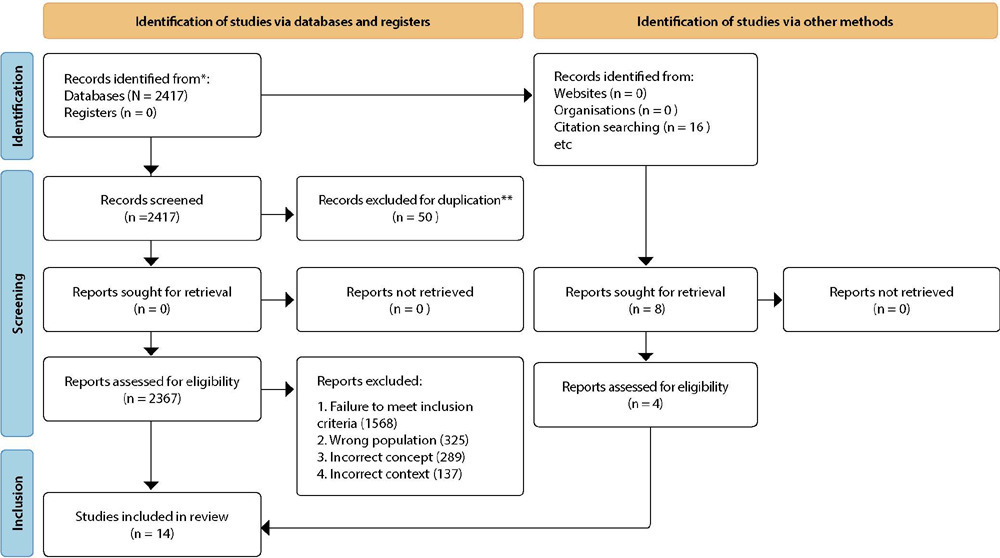
-
ORIGINAL ARTICLE05-03-2024
Cancer patient satisfaction regarding the quality of information received: psychometric validity of EORTC QLQ-INFO25
Revista Brasileira de Enfermagem. 2024;77(1):e20230358
Abstract
ORIGINAL ARTICLECancer patient satisfaction regarding the quality of information received: psychometric validity of EORTC QLQ-INFO25
Revista Brasileira de Enfermagem. 2024;77(1):e20230358
DOI 10.1590/0034-7167-2023-0358
Views0See moreABSTRACT
Objectives:
to psychometrically validate the European Organization for Research and Treatment of Cancer Core Quality of Life Questionnaire EORTC QLQ-INFO25 instrument and identify the domains that influence patients’ perception of the information received.
Methods:
a cross-sectional methodology with cancer patients in a Brazilian philanthropic hospital institution. Sociodemographic and clinical instruments, EORTC QLQ-C30, EORTC QLQ-INFO25 and Supportive Care Needs Survey – Short Form 34 were used. Analysis occurred using Cronbach’s alpha coefficients, intraclass correlation, test-retest and exploratory factor analysis.
Results:
128 respondents participated. Cronbach’s alpha coefficient was 0.85. The test-retest obtained p-value=0.21. In the factor analysis, one item was excluded. Satisfaction with the information received was 74%, with three areas with averages below 70%. In open-ended questions, there was a greater desire for information.
Conclusions:
validity evidence was obtained with instrument reliability, consistency and stability. Respondents expressed satisfaction with the information received.
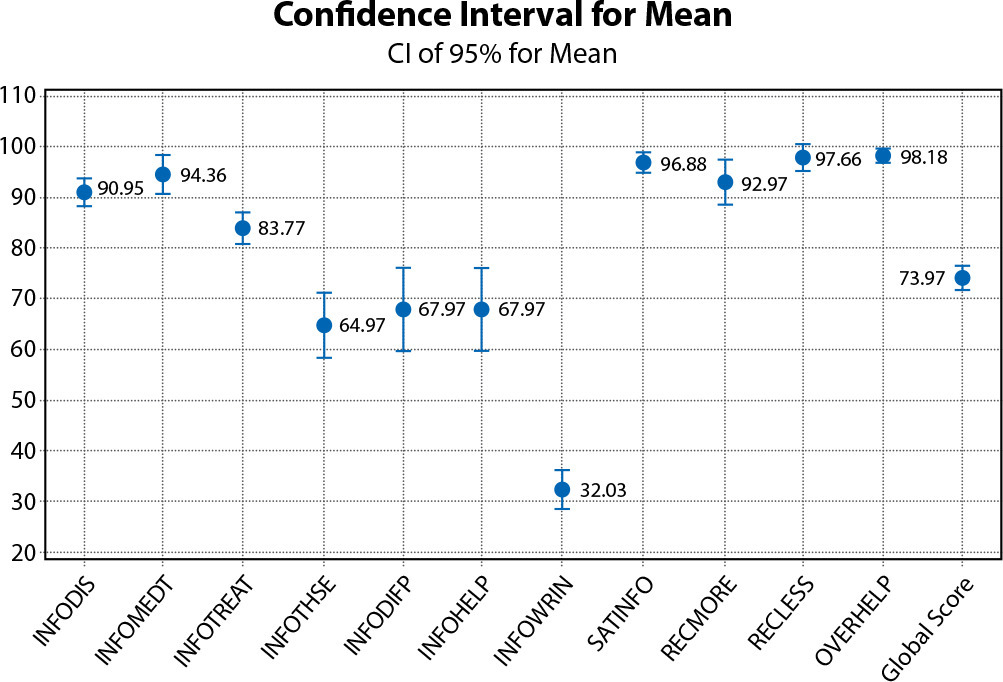
-
REVIEW05-03-2024
Intervenções de Enfermagem para capacitar o cuidador familiar de uma pessoa com amputação de membro inferior: revisão de escopo
Revista Brasileira de Enfermagem. 2024;77(1):e20230264
Abstract
REVIEWIntervenções de Enfermagem para capacitar o cuidador familiar de uma pessoa com amputação de membro inferior: revisão de escopo
Revista Brasileira de Enfermagem. 2024;77(1):e20230264
DOI 10.1590/0034-7167-2023-0264
Views0See moreRESUMEN
Objetivos:
mapear intervenciones de enfermería que capaciten al cuidador familiar de la persona con amputación de miembro inferior para su rol.
Métodos:
es una revisión de alcance guiada por la metodología del Instituto Joanna Briggs, llevada a cabo en diferentes bases de datos (incluyendo literatura gris).
Resultados:
se tuvieron en cuenta seis estudios publicados entre 2009 y 2021, a saber: intervenciones de asesoramiento y apoyo para pacientes y familiares; intervenciones de apoyo entre iguales realizadas por un par de profesionales certificados; participación de cuidadores o familiares en grupos de apoyo e intervenciones clave para el equilibrio psicológico del paciente y del cuidador familiar. Dos estudios analizaron la importancia de la formación del cuidador y del amputado y del desarrollo de habilidades de afrontamiento. Otro estudio recomendó intervenciones de apoyo informativo para los cuidadores en relación con el cuidado del amputado y su adaptación a la vida hogareña.
Conclusiones:
los resultados de esta revisión permiten identificar recomendaciones/directrices para la práctica y recomendaciones/sugerencias de intervenciones según las necesidades identificadas de los cuidadores familiares de pacientes con amputación de miembros inferiores.
-
REVIEW05-03-2024
Nursing interventions to empower the family caregiver of person with lower limb amputation: scoping review
Revista Brasileira de Enfermagem. 2024;77(1):e20230264
Abstract
REVIEWNursing interventions to empower the family caregiver of person with lower limb amputation: scoping review
Revista Brasileira de Enfermagem. 2024;77(1):e20230264
DOI 10.1590/0034-7167-2023-0264
Views0See moreABSTRACT
Objectives:
to map nursing interventions that empower the Family caregiver of the person with lower limb amputation for is role.
Methods:
scoping review guided by Joanna Briggs Institute methodology conducted in different databases (including gray literature).
Results:
six studies published between 2009 and 2021 were included. Interventions of counselling and support for patients and family; peer support interventions performed by a certified pair; involvement of caregivers or family members in support groups; and key interventions for patient and family caregiver psychological balance. Two studies discussed the importance of caregiver and amputee training and development of coping skills. Another study recommended Interventions of informative support for caregivers regarding care for the amputee and adaptation to home.
Conclusions:
results of this review allow the identification of recommendations (guidelines) for practice and recommendations/suggestions for interventions according with identified needs of family caregivers of patients with lower limb amputation.
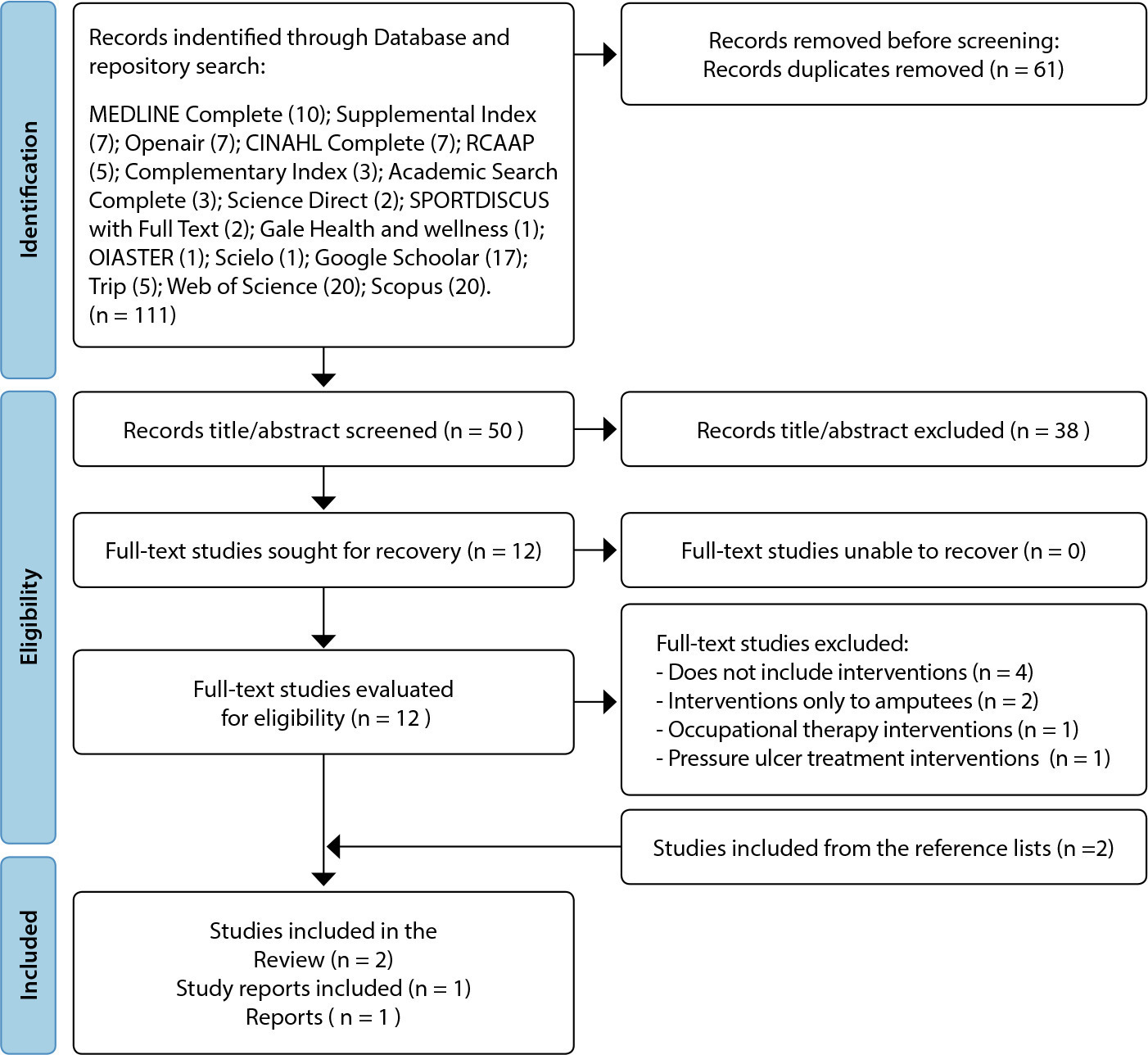
-
ORIGINAL ARTICLE05-03-2024
Pregnancy loss in women with systemic lupus erythematosus: Grounded Theory
Revista Brasileira de Enfermagem. 2024;77(1):e20230225
Abstract
ORIGINAL ARTICLEPregnancy loss in women with systemic lupus erythematosus: Grounded Theory
Revista Brasileira de Enfermagem. 2024;77(1):e20230225
DOI 10.1590/0034-7167-2023-0225
Views0ABSTRACT
Objective:
to learn the meanings attributed to pregnancy loss by women with Lupus.
Method:
qualitative research, based on Symbolic Interactionism and Grounded Theory. Data collection took place between January and August 2022 through in-depth interviews. Data analysis went through the stages of initial and focused coding.
Results:
seventeen women participated. The central phenomenon “The climb to motherhood: falls and overcoming” was constructed, consisting of three categories: “Falling to the ground during the climb: the experience of pregnancy loss”; “Getting up and following the path: new attempts to conceive”; and “Remembering the journey: meanings attributed to pregnancy losses”.
Final considerations:
experiencing pregnancy is, analogously, like climbing a mountain, where obstacles need to be overcome to reach the summit. The experience of pregnancy loss is seen as complex, especially when there is fragility in healthcare and a lack of awareness regarding feelings of loss and grief.
Keywords:AbortionGrounded TheoryHigh-RiskPregnancySpontaneousSymbolic InteractionismSystemic Lupus ErythematosusSee more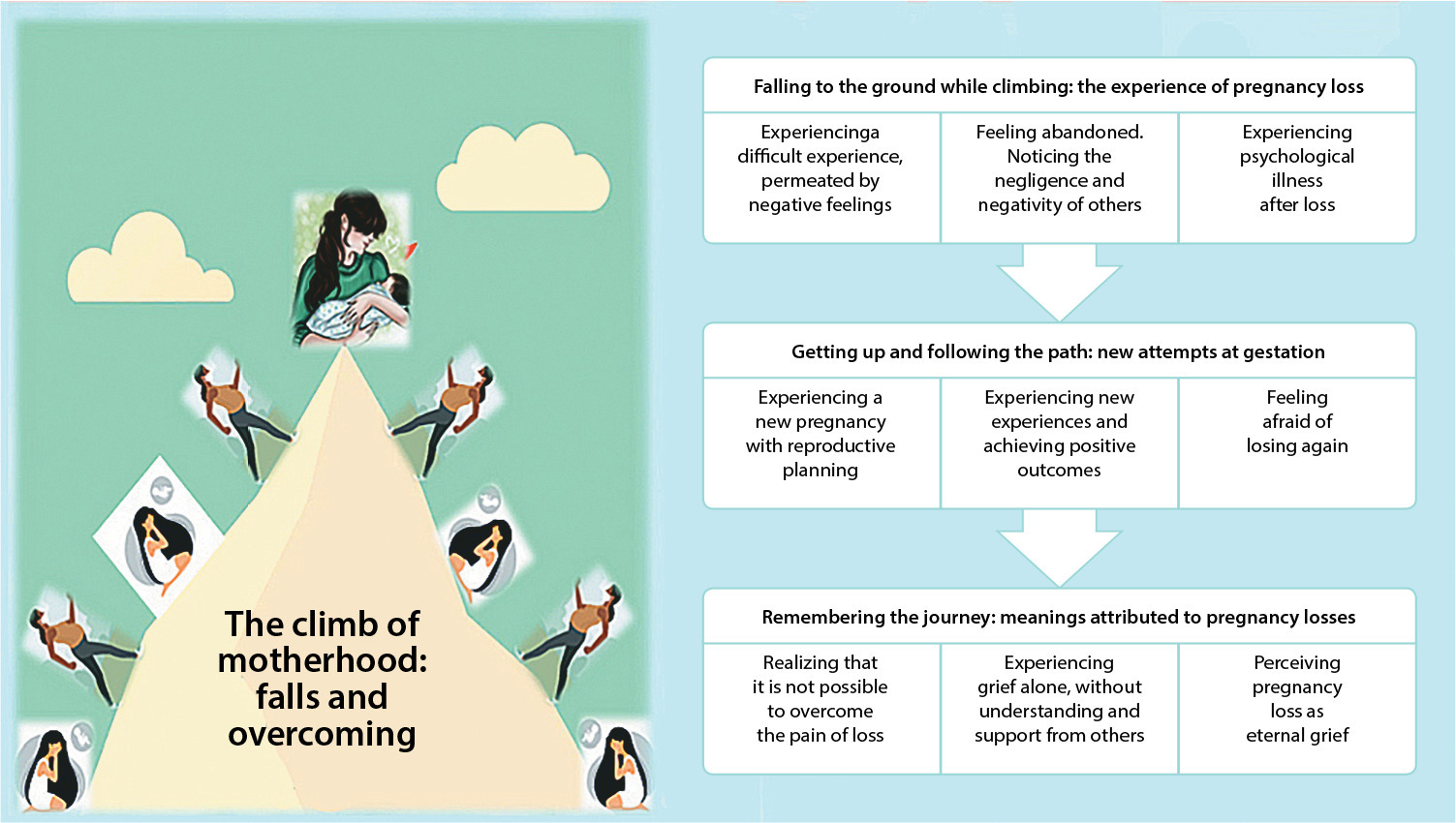
-
ORIGINAL ARTICLE05-03-2024
Josicélia Dumêt Fernandes’ professional trajectory: contributions to psychiatric and mental health nursing
Revista Brasileira de Enfermagem. 2024;77(1):e20230174
Abstract
ORIGINAL ARTICLEJosicélia Dumêt Fernandes’ professional trajectory: contributions to psychiatric and mental health nursing
Revista Brasileira de Enfermagem. 2024;77(1):e20230174
DOI 10.1590/0034-7167-2023-0174
Views0See moreABSTRACT
Objectives:
to analyze nurse Josicélia Dumêt Fernandes’ life story, with emphasis on her work in the psychiatry and mental health fields.
Methods:
historical, qualitative research. Semi-structured interviews and documentary research were used as data collection techniques, collected from September to October 2021. For data analysis, we opted for the content analysis method and comparison with the Foucauldian philosophical framework.
Results:
four categories emerged: Transforming herself and mental health practices; (Re)framing professional practice; Nursing practice and power relations; and The paths and implications in the psychiatry and mental health fields.
Final Considerations:
the study of the biographer demonstrates a search for transformation of herself and mental health practices, with a rupture in paradigms and reframing of her practice in psychiatry and mental health.
-
ORIGINAL ARTICLE05-03-2024
Propiedades psicométricas de la versión chilena del cuestionario de calidad de vida para mieloma múltiple
Revista Brasileira de Enfermagem. 2024;77(1):e20230100
Abstract
ORIGINAL ARTICLEPropiedades psicométricas de la versión chilena del cuestionario de calidad de vida para mieloma múltiple
Revista Brasileira de Enfermagem. 2024;77(1):e20230100
DOI 10.1590/0034-7167-2023-0100es
Views0See moreRESUMEN
Objetivos:
Evaluar consistencia interna y validez de constructo del QLQ-MY20 para valoración de calidad de vida en sobrevivientes de mieloma múltiple en Chile.
Métodos:
Estudio transversal, realizado entre marzo 2020 y diciembre 2022. Participaron 118 personas de dos hospitales públicos. Se utilizaron los cuestionarios QLQ-C30 y QLQ-MY20. Fueron evaluadas la consistencia interna con alfa de Cronbach (α) y validez de constructo mediante pruebas de hipótesis (Mann Whitney y correlación de Spearman).
Resultados:
El promedio de edad de los participantes era 67,2 (DE=9,2) años. Consistencia interna para escala completa (α=0,779), dimensión “síntomas de la enfermedad” (α=0,671), dimensión “efectos secundarios de los tratamientos” (α=0,538) y dimensión “perspectiva de futuro” (α=0,670). Se comprobaron cuatro de las cinco hipótesis de la validez de constructo: presentaron más síntomas las mujeres, personas con peor performance estatus, con dolor y con peor fatiga.
Conclusiones:
La versión chilena del QLQ-MY20 presenta adecuada consistencia interna y validez de constructo.
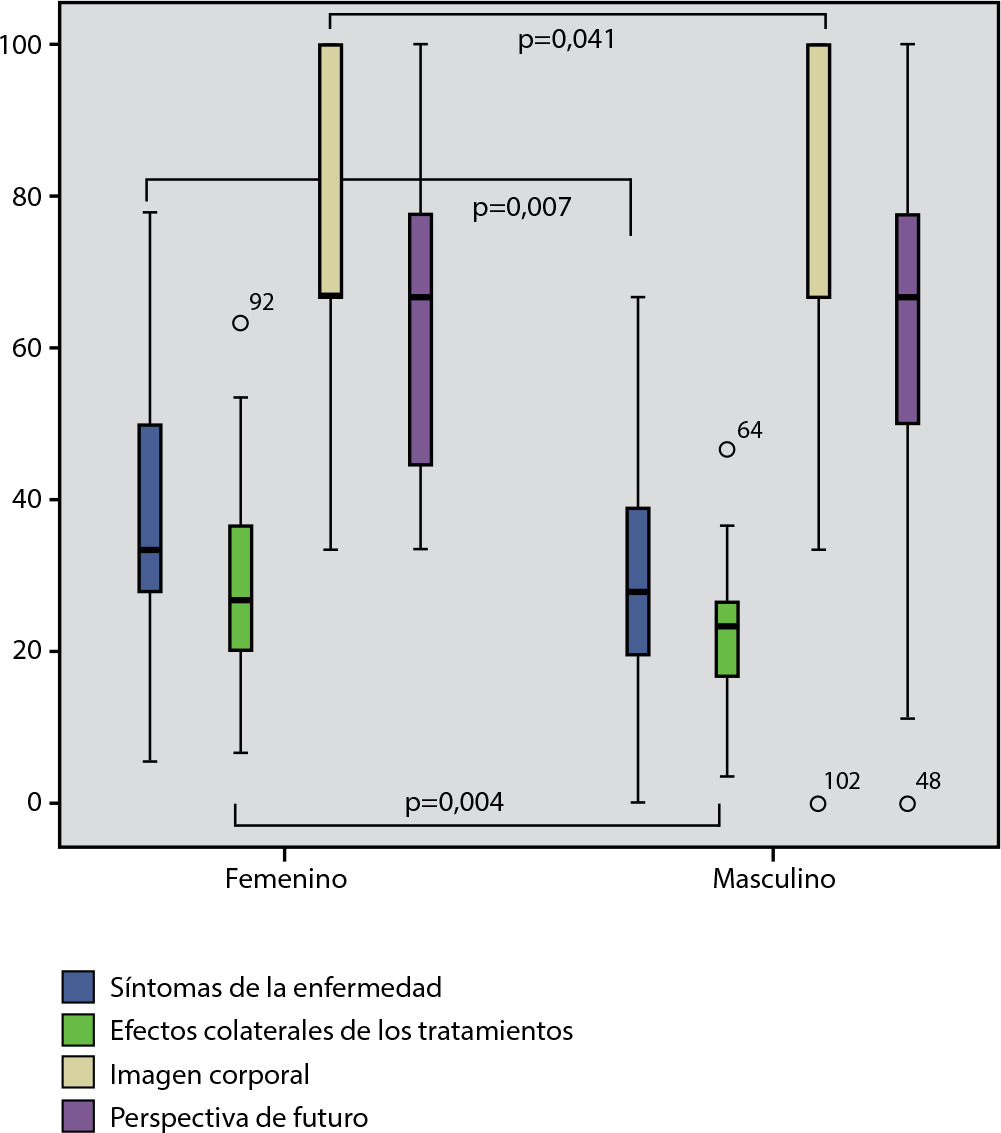
-
ORIGINAL ARTICLE05-03-2024
Psychometric properties of the Chilean version of the quality of life questionnaire for multiple myeloma
Revista Brasileira de Enfermagem. 2024;77(1):e20230100
Abstract
ORIGINAL ARTICLEPsychometric properties of the Chilean version of the quality of life questionnaire for multiple myeloma
Revista Brasileira de Enfermagem. 2024;77(1):e20230100
DOI 10.1590/0034-7167-2023-0100
Views0See moreABSTRACT
Objectives:
To evaluate the internal consistency and construct validity of the QLQ-MY20 for assessing the quality of life in multiple myeloma survivors in Chile.
Methods:
This was a cross-sectional study conducted between March 2020 and December 2022. It involved 118 individuals from two public hospitals. The QLQ-C30 and QLQ-MY20 questionnaires were used. Internal consistency was assessed using Cronbach’s alpha(α), and construct validity was evaluated through hypothesis testing (Mann-Whitney and Spearman correlation).
Results:
The average age of participants was 67.2 years (SD=9.2). Internal consistency for the complete scale was α=0.779, for the “disease symptoms” dimension α=0.671, for the “side effects of treatments” dimension α=0.538, and for the “future perspective” dimension α=0.670. Four of the five construct validity hypotheses were confirmed: women, individuals with worse performance status, those with pain, and those with worse fatigue showed more symptoms.
Conclusions:
The Chilean version of the QLQ-MY20 demonstrates adequate internal consistency and construct validity.
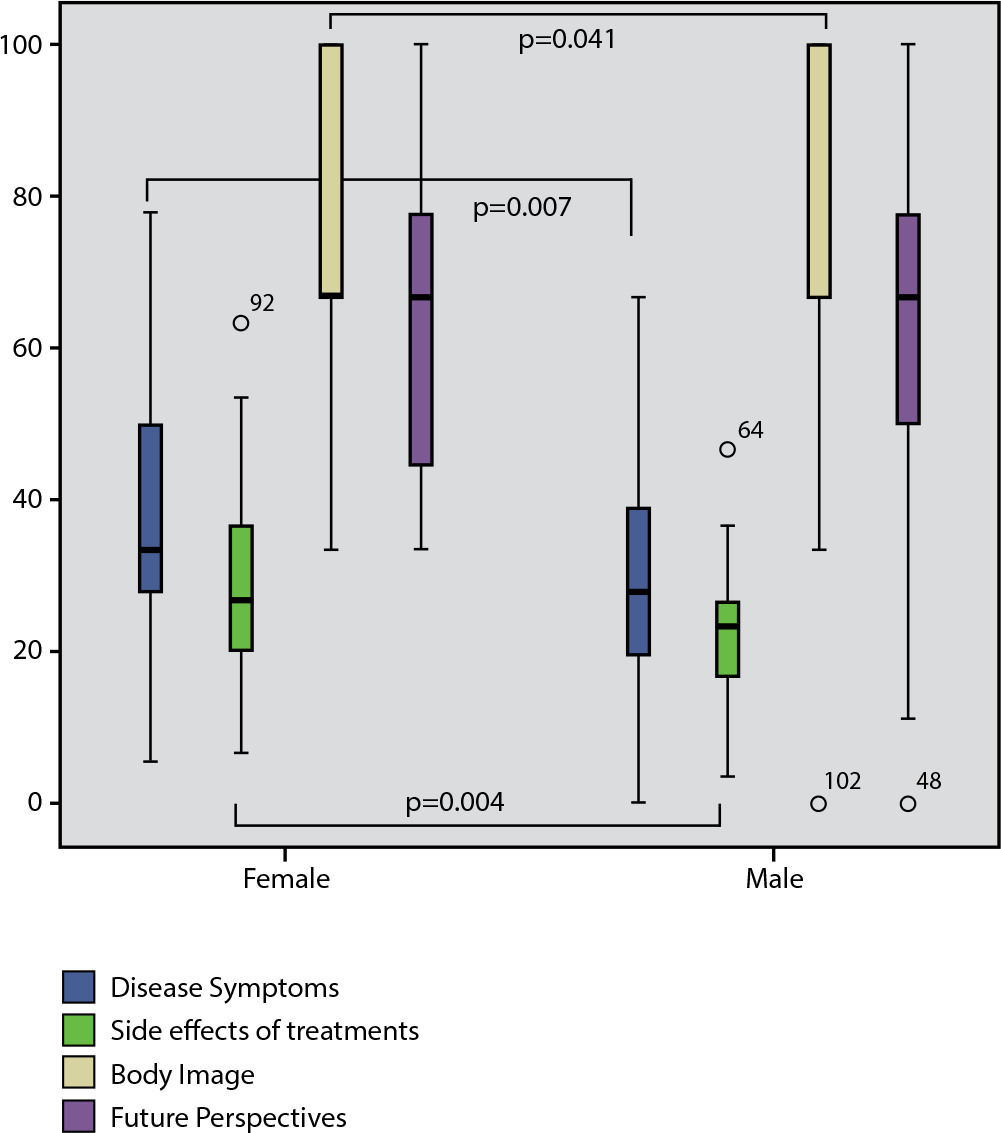
Search
Search in:
Nuvem de Tags
Aged (144) Atenção Primária à Saúde (239) COVID-19 (104) Cuidados de Enfermagem (269) Educação em Enfermagem (151) Educação em Saúde (139) Enfermagem (930) Estudos de Validação (131) Health Education (144) Idoso (208) Mental Health (149) Nursing (987) Nursing Care (306) Patient Safety (151) Primary Health Care (284) Qualidade de Vida (104) Quality of Life (106) Saúde Mental (145) Segurança do Paciente (150) Validation Studies (108)



